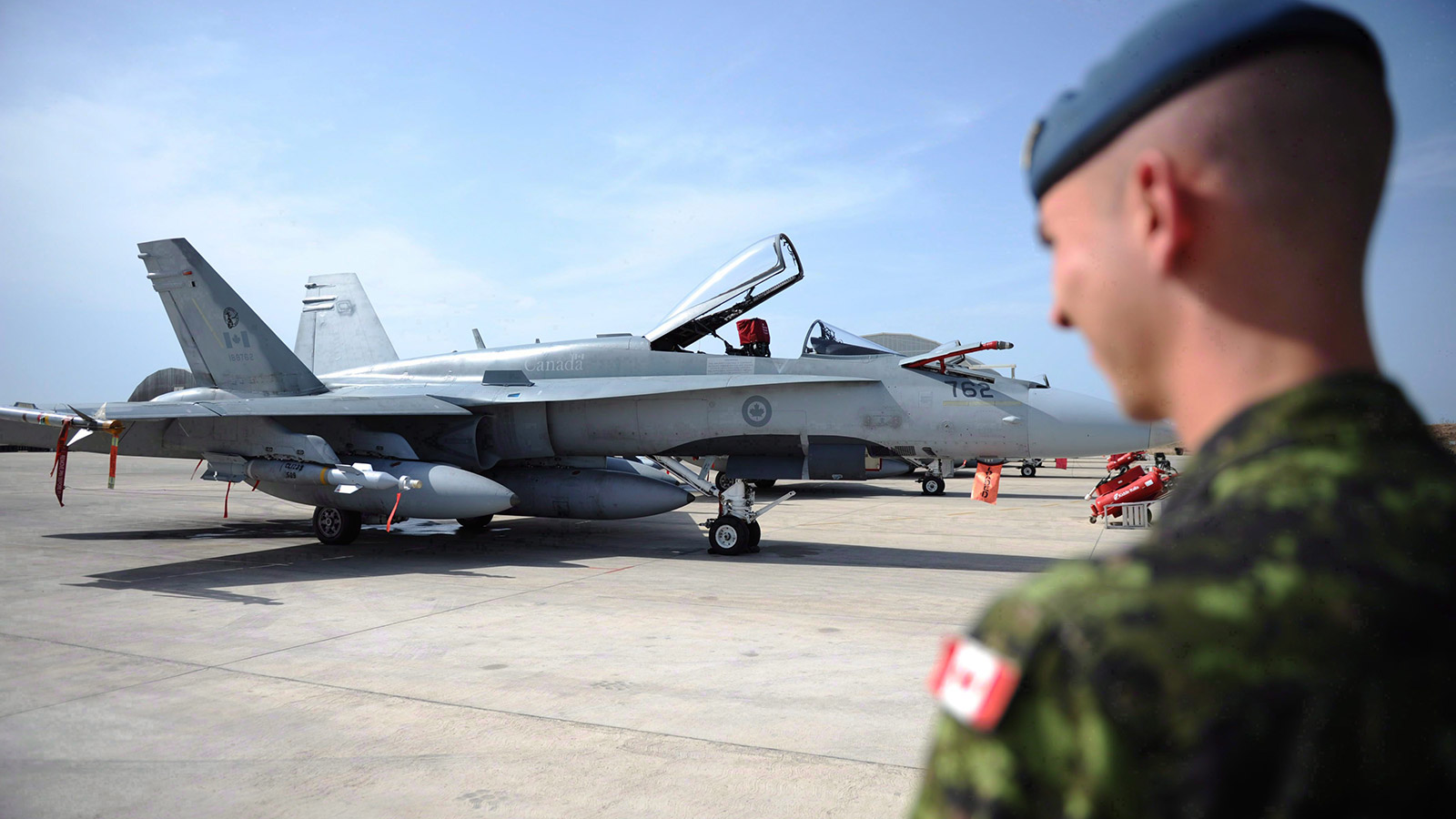Editorial: In the fight against ISIS, it’s worth getting our hands dirty
In joining the coalition, Canada is properly fulfilling its global obligations to promote peace and security in a difficult part of the world
Sean Kilpatrick/CP
Share

“No plan of battle survives first contact with the enemy,” observed 19th-century Prussian strategist Helmuth von Moltke. Risk, loss and uncertainty are fundamental to every military endeavour. Canada’s six-month mission against Islamic State, as approved by Parliament this week, will be no exception.
In sending six CF-18 fighters, two surveillance aircraft and a refuelling tanker to participate in the U.S.-led coalition against Islamic State, it is possible Canada’s contingent of pilots, advisers and support crew will suffer casualties. There will be an obvious financial cost to be borne as well, although the exact size cannot be known with certainty. Participating in such a direct fashion may also make our country a target in the future for other radical Islamic terrorists.
There are many other important, but equally unanswerable questions, about Canada’s mission to the Middle East. Will Islamic State prove as difficult to dislodge from Syria and Iraq as the Taliban were in Afghanistan? Will it be possible to replace its putative caliphate with stable and coherent governments? How many civilians will die as a result of Islamic State targets being bombed? Is airpower sufficient to eliminate the threat of radical Islam? Will the mission need to be extended six months hence? The proper response to all such queries: We simply don’t know.
But does this lack of certainty mean we should disengage from the battle against radical Islamic terrorism and leave our CF-18s at home? On this score the answer is clear: absolutely not.
In this week’s parliamentary debate on the Harper government’s motion to authorize Canadian airstrikes in Iraq, and possibly Syria, both opposition parties chose to dwell at great length on the many uncertainties of the plan. The six-month mission could turn into a “quagmire,” warned NDP Leader Thomas Mulcair. Despite the fact he supports supplying arms to factions fighting Islamic State on the ground, Mulcair fretted about the possibility of civilian casualties caused by coalition airstrikes. “Canada’s first contribution should be to use every diplomatic, humanitarian and financial resource at our disposal,” he concluded. All safe strategies, to be sure. And utterly useless at this point in the Islamic State conflagration.
Liberal Leader Justin Trudeau demonstrated his own foreign policy naïveté by claiming Canada enjoys a comparative advantage over its allies in airlift capacity and that we should to stick to moving things around for others. “We think there is a role for Canada to be involved in the fight,” he told the House of Commons. But only in a “non-combat” way. Anything else would be too risky and unpleasant.
While readily accepting the loathsomeness of Islamic State, which has engaged in public beheadings, rape, slavery, mass murder and numerous other repugnancies, the opposition leaders argued strongly against a Canadian combat mission. They’d rather someone else got their hands dirty. But shirking isn’t strategy. In joining the coalition that includes familiar allies such as the U.S., Britain, Australia, Denmark and France, as well as Arab states such as Jordan, Bahrain and Saudi Arabia, Canada is properly fulfilling its global obligations to promote peace and security in a difficult part of the world. That said, the strongest claim on risking Canadian lives and resources against Islamic State rests entirely on self-interest.
The main lesson to be gleaned from 9/11 is the broad threat posed by power vacuums in volatile parts of the world. When the Taliban took over Afghanistan after the fall of the Russian-backed government in the 1990s, it offered its terrorist partners a sympathetic home base from which to operate. From this distant location, they were able to deliver destruction direct to North America. A cross-border caliphate in the Middle East presents an even greater danger to world stability. Not only is it located much closer to travel routes and major population centres, but it seeks a violent theological war with its Islamic neighbours in addition to Western nations. The potential flashpoints are far more numerous this time around. Canada’s first interest in this fight is to keep its own citizens safe.
Of course our experience in Afghanistan, not to mention more recently in Libya where Canada participated in the 2011 bombing campaign that ousted strongman Moammar Gadhafi, also emphasizes that more than just airstrikes are required to achieve long-lasting success. With Libya now riven by tribal violence and Afghanistan still painfully underdeveloped, Canada and the rest of the nations participating in the fight against Islamic State must think carefully about what they want to leave behind once the mission is over. Real stability is difficult to achieve. What Iraq or Syria will look like in a year’s time is still uncertain.
The only thing we can know for sure: the world will be better off without Islamic State.